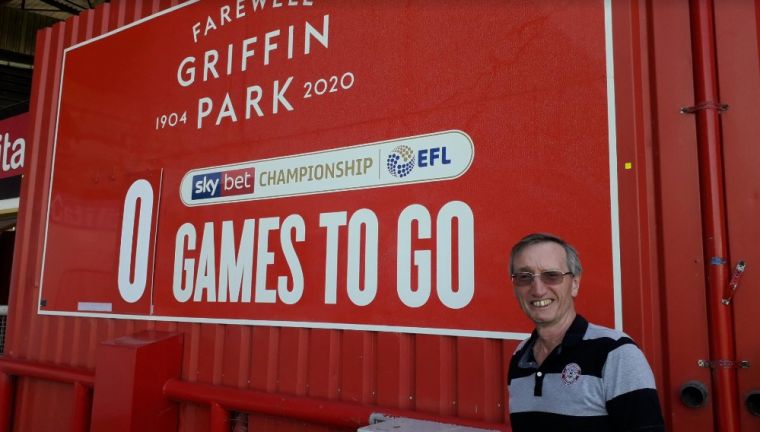Can I pray for my team to win on Saturday?

The football team I have supported for more half a century will play in a match at Wembley on Saturday with one of the biggest prizes in soccer.
Brentford FC, based in west London – where I grew up – will play Swansea in a match to decide which of the teams will be playing in the prestigious Premier League next season. Sadly, because of Covid limits, many fans will not be able to attend the match.
Financially, in terms of TV rights, sponsorships and global exposure, the rewards are massive, and the winning side will face top international clubs like Manchester City, Manchester United, Liverpool and Chelsea next season.
So, as a Church of England priest and football fan, should I be praying for Brentford to win the vital match? And especially after we lost out last season at just this point to another west London club?
Former top professional footballer, and Christian, Gavin Peacock writes in his newly-published autobiography, 'A Greater Glory' (Christian Focus) how he prayed minutes before playing in the FA Cup Final for Chelsea against Manchester United. He recalls, "I said a quick prayer – not to win but to honour God win or lose."
In the event, Peacock hit the crossbar with Chelsea's best shot of the 1994 match – and United went on to win 4-0.
Closer on target was Liverpool goalkeeper Alisson Becker who headed a decisive 95th minute goal in a Premier League match earlier this month. The Brazilian who, like Peacock, makes no secret of his Christian faith, told an interviewer "God put his hand on my head today."
A football-supporting bishop told me, "There are no atheists when it comes to penalty shoot-outs," and Bishop of Sheffield Peter Wilcox wrote in 2008, "If the glory of God is a human being fully alive, then there is much to celebrate in the aura that surrounds football."
But he added: "Yet the Church is unclear whether to regard football as a healthy form of leisure and athletic activity, as a parallel place of belonging amid social atomization, or more sinisterly as a rival religion with its own gods, its own liturgies and its own consequent idolatry."
When it comes to praying for Brentford, I do have previous form. When the club left Griffin Park last year to move to a brand-new stadium, I wrote a prayer to bid farewell to the ground that had been its home for 116 years. Fans responded well and it was shared by supporters' networks.
Football clubs are about more than what happens on the pitch. Much more. They are about the shared memories of generations of parents, children and grandchildren. About recalling the people we used to go to matches with in years gone by. A recent club sponsorship was with a local undertaker, offering fans coffins in the team's colours.
Clubs are centres of community, of coming together. Increasingly, Brentford and other clubs have promoted diversity in all its forms and been a focus for changing attitudes in society. Leading clubs have become international in their outlook, with players and supporters drawn from around the world.
Earlier this month, Brentford's Facebook page declared: "Everyone at #BrentfordFC stands shoulder to shoulder in solidarity with the people of Myanmar during these difficult times."
The positive response to the club's stand was shown by the posts from supporters in Myanmar and around the world. When Brentford won through to the play-off final last Saturday, there were numerous online congratulations from fans in the far eastern country, facing oppression after a military coup.
Football can be an engine for good – locally with grassroots community schemes, nationally by combating racism and other forms of discrimination, and globally by taking a stand on human rights issues.
So I shall be praying for Brentford's victory on Saturday, knowing that rival fans may be praying for a different outcome. And that's fine too.
Brentford has a proud tradition and a bright future. Clubs like 'The Bees' can demonstrate how football can be a source of good and a driver for change – far beyond whatever happens on the pitch.
Rev Peter Crumpler is a Church of England minister in St Albans, Herts, and a former communications director for the CofE.











